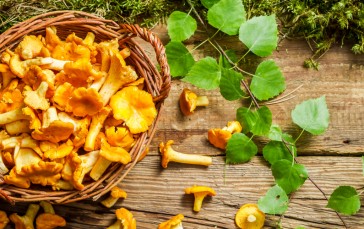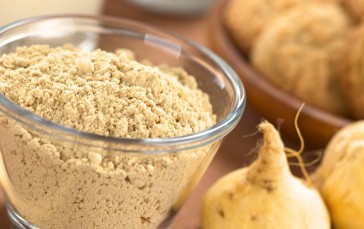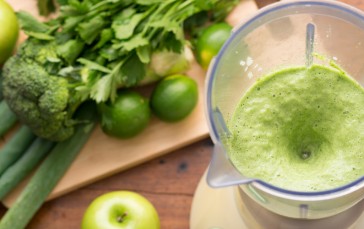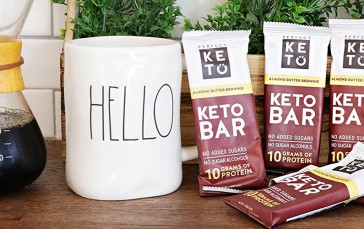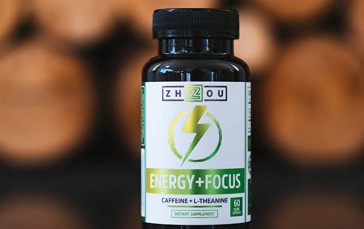Benefits Of Superfoods
The trend to eat healthy foods overcomes us all from time to time and marketing agencies are in constant overdrive to direct our attention towards products that promise to improve our health and wellbeing. One term that can instantly catch the eye of health buffs all over the world is the term “superfoods”. These are the A-list celebrities of the food world and have many of us flocking to health food stores and organic markets in search of food we hope will turn us into super healthy, superhumans.
There’s no doubt about it. We all love the idea of consuming food we believe to be so much healthier than the ordinary stuff we normally see in the supermarkets. But we need to ask ourselves … “Are superfoods real and what are the benefits?

So, What Are Superfoods?
To understand the popularity of superfoods, we should first look at what they actually are. In short, superfoods are simply foods that are nutrient dense that are particularly beneficial to achieve optimal health. They are usually plant-based foods, but some fish and dairy products also classify as superfoods. These are foods that promise to prolong life, fight disease, help you lose weight and generally improve your health in leaps and bounds.
What Types Of Foods Are Considered To Be Superfoods?
Seeds And Nuts – We’re constantly told to find healthy snack alternatives to processed food. Some of the best snack foods are seeds and nuts. They are packed with vitamins, minerals, and healthy fats. Many healthy seeds and nuts also have anti-inflammatory and anti-oxidant properties. All of these are helpful in maintaining good heart health and as they also tend to pack serious protein, they curb cravings for the not-so-healthy snacks.
Fermented Foods –Who would have thought that food that was starting to turn could actually be considered a superfood? Think of food like sauerkraut, or the Korean version, Kimchi. It’s hard to believe that the humble cabbage can do so much good for the body. It’s healthy as a fresh vegetable, but when it goes through the fermenting process, its nutritional value goes through the roof. To further cement its place in the superfood category, they are also rich in probiotics which are great at improving digestive health but introducing healthy bacteria into the gut. Fermented foods also include dairy products such as yogurt and kefir. Both of these are also rich in probiotics and, thanks to the fermenting process, may make these dairy products easier on the tummy for those with lactose intolerance.

Green, Leafy Vegetables – These garden staples such as kale, silver beets and spinach are a powerhouse of nutrients. What makes them extra appealing is that they are also quite low in calories and very high in dietary fiber. Cooked or in salads, they are a definite enhancement that needs to be added into your daily menu.
Oily Fish – Nutritionists are constantly telling us to include more fish into our diets, but will any fish do? Not really. Some fish are simply better than others and we should choose oily fish such as salmon as often as we can. This fish is packed with Omega 3 fatty acids, as well as other healthy fats, B group vitamins, potassium and selenium. Salmon is also a rich source of protein which makes it a great mass gaining food, it also repairs muscles and keeps us feeling satisfied for longer.
Seaweed –It’s hard to think of algae as anything other than slimy. But seaweed is incredibly good for you. Primarily used in Asian cuisine, seaweed is often used to hold those delightful rolls of sushi in place. It is also making headway powdered or in pill form as dietary supplements commonly known as chlorella or spirulina. In powdered form these substances can be added to smoothies and other dishes. Seaweed is packed with vitamins and minerals and you don’t need much of this superfood to reap the benefits.
Berries – These tiny little morsels can be considered Nature’s candy. They are usually intense in color and flavor so eating them is a real treat. What’s more, for such a small food, they are packed with fiber and antioxidants, not to mention being a rich source of vitamins and minerals. The more intense the color, the more nutrient dense they usually are. Add them to cereal, yogurt or smoothies for a quick burst of energy.

Do Superfoods Really Live Up To The Hype?
There are several reasons why a particular food can enter the superfood category and they include things like nutrient density, antioxidant and anti-inflammatory properties and the ability to boost our immune systems. They promise to increase our longevity while decreasing the likelihood of certain cancers. But do they really work or is it just a clever word-play used by marketing companies to get us to spend big bucks on what is essentially, just food? The answer is both. It goes without saying that some foods offer us more value nutritionally than others but it seems that the moment it is given a superstar status like “organic” or “superfood”, the price goes up.
The other misconception is that if we incorporate one or two of these superfoods into our diets, we somehow have a green light to continue our not-so-healthy lifestyles. Even if you replace every item in your pantry with superfoods that you consume during the week, you can’t resort to binging on fast food and booze over the weekend and keep your health intact.

The Final Verdict
Before you throw out every morsel of food in your home and go shopping for superfoods, do your own research. Some studies have shown that eating a variety of everyday fresh foods can give us the same benefits as some of the superfoods, minus the massive price markups.
If you still want to add some foods or supplements into your diet that do carry the superfood label, go right ahead. Even if they won’t turn you into a superhuman, they certainly won’t do you any harm either.





